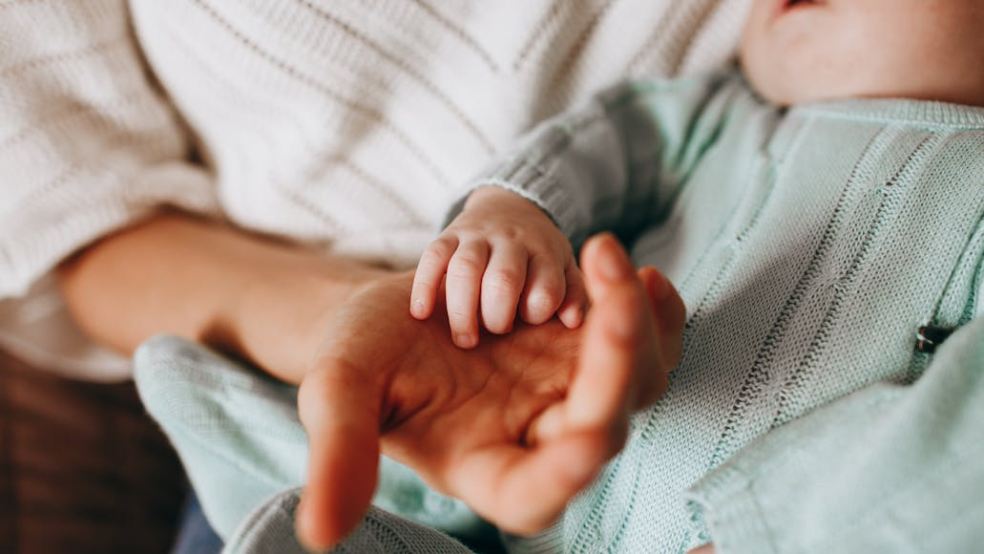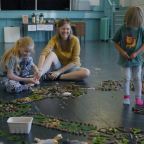
Up to what age can a woman give birth?
The biologically optimal age for childbirth is up to 35 years, but with the help of modern reproductive technologies, a woman can give birth after 40, although the risks of complications increase.
Current trends and biology
According to data from the UK's Office for National Statistics (ONS), the average age of British women at the birth of their first child has also risen significantly: from around 24 in the 1970s to around 30–31 in the 2020s.
In the UK, having your first child after the age of 30 has become commonplace, especially in London and other large cities. This reflects a broader social picture: women are seeking to complete their university education, build a career, buy their own home or achieve financial stability before deciding to become mothers. In recent years, the British media and medical communities have been actively discussing the topic of ‘delayed motherhood,’ which reflects not only social but also cultural priorities in society. For example, BBC Health publications and data from the Royal College of Obstetricians and Gynaecologists (RCOG) indicate an increase in the average age of first-time mothers. At the same time, doctors, based on research published in The Lancet, warn that a conscious delay in motherhood should be accompanied by awareness of the biological risks.
In addition, egg freezing is becoming increasingly popular in the UK as a way to preserve fertility for the future. Many private clinics and even some university programmes offer women the option of freezing their eggs before the age of 35. This trend reflects a growing interest in reproductive medicine technologies among British women planning to delay motherhood.
However, female physiology remains unchanged: the body functions according to biological rhythms, and its reproductive capabilities do not depend on career or personal plans. Therefore, when planning a family, it is important to take into account age-related factors when fertility and egg quality are at their peak.
Biological and medical aspects of age
How does age affect fertility?
Over the years, the number of antral follicles in the ovaries decreases and the quality of eggs deteriorates. This process is natural and irreversible: all of a woman's eggs are formed before she is born, and their biological age is directly related to the age of the woman herself.
Menopause and the end of reproductive function
With the onset of menopause:
- the number of eggs decreases sharply;
- menstrual cycles cease;
- ovulation disappears;
- the endometrium undergoes age-related changes.
Despite this, residual hormonal activity of the ovaries persists, which helps to gently restructure the body, protects the cardiovascular system and maintains the overall well-being of women.
Optimal age and possible risks
Recommended age for childbirth
Medical practice shows that the optimal age for giving birth to the first child is between 20 and 28 years old, and for the second child — up to 35 years old. During this period, the quality of the eggs remains high and the risks of complications for the mother and child are minimal.
The main risks of late pregnancy
- Genetic: the likelihood of having a child with chromosomal abnormalities, such as Down syndrome, increases.
- Cardiovascular: after the age of 36, the strain on the mother's heart and blood vessels increases.
- Gestational: pre-eclampsia, gestational diabetes and foetal hypoxia are more common.
- Obstetric: the risk of complicated labour increases, including the need for a caesarean section.
Preparing for pregnancy after 35
Key steps in preparation include:
- genetic testing (karyotyping) to assess hereditary risks;
- weight control, as obesity reduces fertility and increases the risk of complications;
- medication to correct hormone levels and the blood coagulation system;
- surgical intervention in the presence of fibroids, endometrioid cysts, polyps;
- psychological support to promote a confident attitude.
Pregnancy after 40 and ART
Assisted reproductive technologies allow women over 40 to successfully become mothers.
Methods include:
- in vitro fertilisation (IVF) with the woman's own eggs;
- nuclear transfer (PNT) or mitotic spindle transfer (MST);
- egg donation programmes;
- embryo donation and surrogacy in complex cases.
When is IVF with egg donation recommended?
This programme is recommended in the following cases:
- depleted ovarian reserve;
- previous ovarian surgery;
- hereditary diseases.
The main prerequisite for success is a healthy endometrium and the ability of the uterus to accept the embryo.
Late pregnancy: advantages and disadvantages
Advantages of late motherhood
- a more conscious approach and responsibility;
- emotional maturity and stability in relationships;
- financial and social stability.
Advantages of early motherhood
- high quality of eggs;
- minimal risk of genetic abnormalities;
- natural course of pregnancy and childbirth;
- fewer chronic diseases.
What to do if you are postponing motherhood?
- Undergo ovarian reserve testing (ultrasound, AMH);
- Consider egg freezing at a young age;
- Treat gynaecological diseases in advance;
- Lead a healthy lifestyle, which directly affects the quality of future genetic material.
What is the ideal age?
From a biological point of view, the best age to have a baby is between 20 and 35. However, thanks to advances in reproductive medicine, women today can become mothers later in life. It all depends on your health, lifestyle and timely access to specialists.
The team at the Natuvitro fertility clinic in Barcelona supports its patients at every stage, from planning to childbirth. An individual approach and high professionalism help make the dream of motherhood come true at any age.













